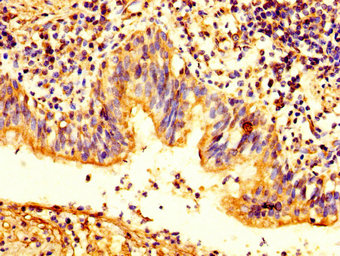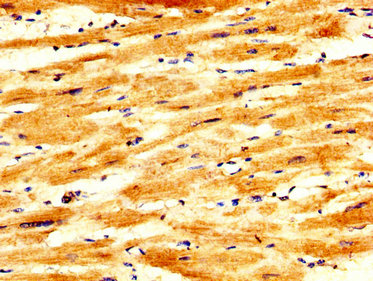Full Product Name
Rabbit anti-Homo sapiens (Human) PKP2 Polyclonal antibody
Alternative Names
ARVD 9 antibody; ARVD9 antibody; PKP 2 antibody; PKP2 antibody; PKP2_HUMAN antibody; Plakophilin-2 antibody; Plakophilin2 antibody
Immunogen
Recombinant Human Plakophilin-2 protein (61-183AA)
Immunogen Species
Homo sapiens (Human)
Conjugate
Non-conjugated
The PKP2 Antibody (Product code: CSB-PA859116LA01HU) is Non-conjugated. For PKP2 Antibody with conjugates, please check the following table.
Available Conjugates
| Conjugate |
Product Code |
Product Name |
Application |
| HRP |
CSB-PA859116LB01HU |
PKP2 Antibody, HRP conjugated |
ELISA |
| FITC |
CSB-PA859116LC01HU |
PKP2 Antibody, FITC conjugated |
|
| Biotin |
CSB-PA859116LD01HU |
PKP2 Antibody, Biotin conjugated |
ELISA |
Purification Method
>95%, Protein G purified
Concentration
It differs from different batches. Please contact us to confirm it.
Buffer
Preservative: 0.03% Proclin 300
Constituents: 50% Glycerol, 0.01M PBS, pH 7.4
Tested Applications
ELISA, IHC
Recommended Dilution
| Application |
Recommended Dilution |
| IHC |
1:200-1:500 |
Storage
Upon receipt, store at -20°C or -80°C. Avoid repeated freeze.
Lead Time
Basically, we can dispatch the products out in 1-3 working days after receiving your orders. Delivery time maybe differs from different purchasing way or location, please kindly consult your local distributors for specific delivery time.
Usage
For Research Use Only. Not for use in diagnostic or therapeutic procedures.








